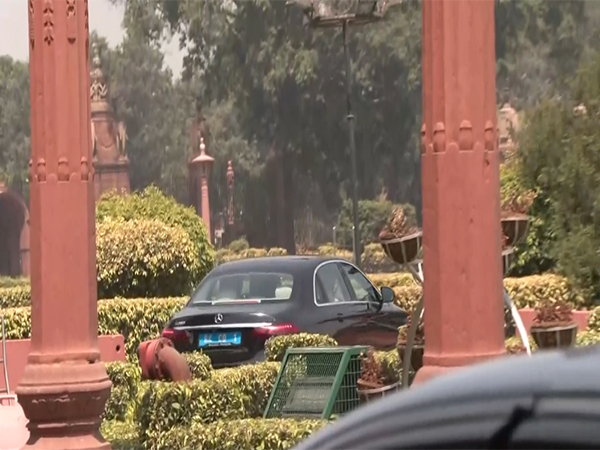Germany's China policy undergoing subtle, profound changes
Oct 10, 2022

Beijing [China], October 10 : Germany's China policy is undergoing subtle and profound changes, which have brought about more uncertainty to the future of their relations.
Since the 2010s, subtle adjustments have occurred to Germany's China policy. Furthermore, the Donald Trump administration of the United States "trade war" with China impacted Germany's opinion of China, reported CGTN.
Germany's China policy has been influenced by various factors internally and internationally.
The first factor is the game between different industries and interest groups in Germany. Those enterprises and industries that have great interests in China still maintain a pragmatic and friendly stance towards the country.
Yet for those enterprises without business dealings with China, they suggest reducing Germany's dependence on China's market to lower their competitive pressures, reported CGTN.
The second factor is the coordination of different parties in the coalition government on China. The ruling partner Green Party's ideological position on China deeply influences the attitude of the coalition government.
The third fact is Brussels. Scholz's government has clearly said that Germany will formulate its China strategy within the framework of EU's China policy.
Furthermore, Germany's China policy is also influenced by international politics such as Sino-US competition, the Russian-Ukrainian conflict and the adjustments of China's foreign policy as well, reported CGTN.
Nonetheless, Merkel didn't change the general tone of Germany's China policy during her term as chancellor, but her successor Olaf Scholz seems to have altered it at profound levels.
Scholz's first Asia trip as chancellor was to Japan, which is considered an end of Berlin's tradition of dialogue with Beijing first and then with other countries in Asia.
Scholz's China policy is constricted by ruling partners especially the Green Party, which has serious ideological prejudice against China. After the outbreak of the Russian-Ukrainian military conflict, Germany has turned tougher on China.
Some senior German officials including Chancellor Olaf Scholz have suggested that Germany should never be "naive" when facing Russia and China, reported CGTN.
In this domestic context, German society is discussing the "decoupling" strategy on China's economy. In early 2019, the Federation of German Industries (BDI) called German enterprises to reduce their reliance on the Chinese market.
After the Russian-Ukrainian military conflict erupted, some German politicians also proposed this "decoupling." In September 2022, Germany's economic minister Robert Habeck said that the German government was formulating a new trade policy on China to reduce its dependence on Chinese raw materials, batteries and semiconductors.
If the "decoupling" policy becomes the case, Sino-German relations could lose their economic interdependence, which will cause greater uncertainty to their bilateral relations, reported CGTN.
Today's coalition government led by Scholz has deviated away from Merkel's pragmatism and making Germany's China policy more ideological and confrontational.



















